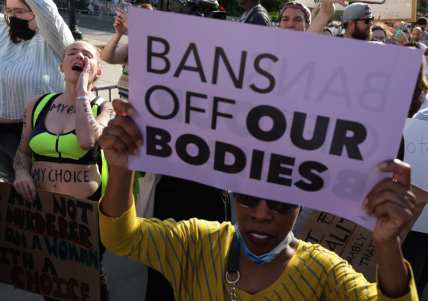The Senate battle over abortion is underway. But it’s certainly not a new fight
The legislative conundrum in the Senate to protect or overturn Roe v. Wade dates back decades, suggesting an uphill battle for the latest push on Capitol Hill.
A vote in the U.S. Senate on Wednesday to advance legislation that would codify Roe v Wade into law amid its looming Supreme Court overturn has failed, but a strategy on how to protect abortion rights is underway at the White House and on Capitol Hill.
The Biden-Harris administration is currently exploring potential executive orders to protect the right to an abortion. The timing of these actions has yet to be announced. Still, the president had been in talks with members of Congress ahead of the Senate’s vote on Wednesday.

When asked by theGrio about President Joe Biden’s discussions with lawmakers, White House Press Secretary Jen Psaki said he’s “been in touch with a range of senators” and that he has asked his gender policy advisory team, the Department of Health and Human Services (HHS) and the White House counsel office to prepare a plan on how to respond to this moment.
“I can assure you he is in touch with a range of members…certainly we will continue to assess and directly with Congress,” Psaki told theGrio.
Meanwhile, the United States is potentially on the precipice of a new anti-abortion era, one that has not been seen since before Roe v. Wade was decided in 1973. The United States Supreme Court is expected to end the landmark decision of Roe v. Wade in its decision expected to come down no later than June. The final outcome of the hotly contested abortion law follows the Politico bombshell report that contained a leaked version of the opinion draft written by Justice Samuel Alito.
The Roe v. Wade ruling essentially put in place a federal cap on the timeline for when a woman can terminate a pregnancy, establishing a woman’s right to an abortion. The court, citing fundamental rights under the 14th amendment, ruled that a woman had discretion on the matter.
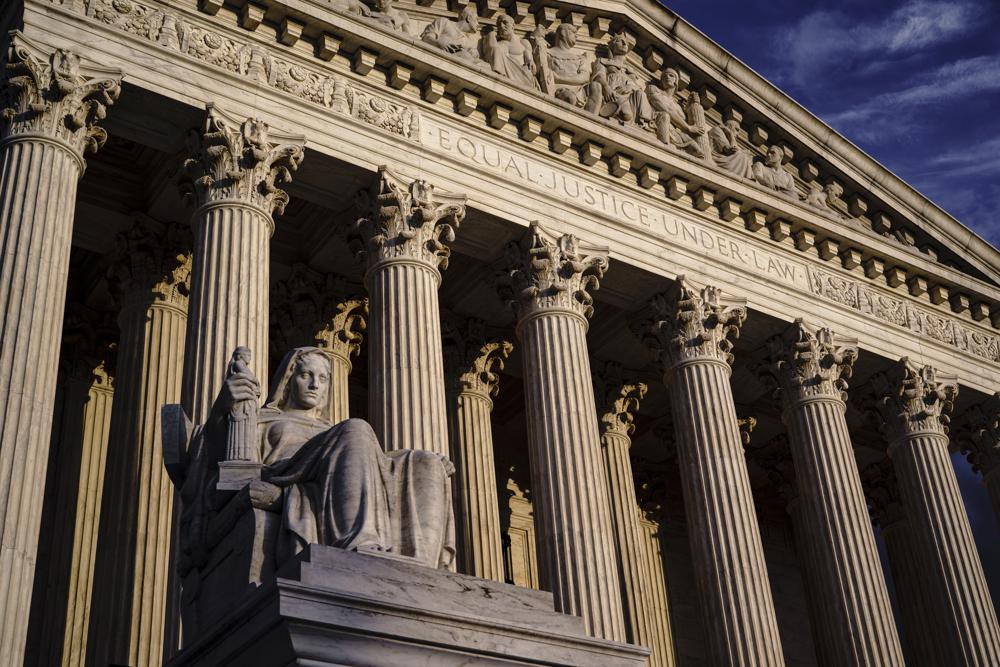
In her second trimester, the court allowed the state to regulate the procedure but not outlaw it. However, after the second semester – when the fetus became viable – the state could regulate or outlaw abortions in the interest of the “potential life except when necessary to preserve the life or health of the mother,” according to a legal explainer from Cornell Law School.
The political, and in many cases, religious fight over abortion has ignited an ongoing battle between the so-called pro-choice and pro-life sides of the issue since the Supreme Court’s 1973 decision. Every year since the ruling, it has been a flashpoint in most election cycles.
Mary Francis Berry, the former chair of the United States Commission on Civil Rights, told theGrio exclusively that the issue of abortion rights has become a political flashpoint this midterm election season and that “leadership is using this to get out the vote.” Berry emphasized that conservatives also seized on the looming ruling earlier this year, including organizing demonstrations like January’s March for Life in Washington, D.C.
Berry recalled a legislative battle in 1982 when President Ronald Reagan supported a Republican-sponsored “constitutional amendment to end abortion” in the Senate.

As reported by The Washington Post, President Reagan who opposed legalized abortion “announced that he would play a direct role in the abortion debate” in a letter to Republican senators and urged them to break a filibuster that prevented the anti-abortion legislation sponsored by Sen. Orrin Hatch (R-Utah) to reverse Roe v. Wade by permitting Congress or the states to “regulate or prohibit the right of a woman to end a pregnancy by abortion.”
Another amendment from Sen. Jesse Helms (R-N.C.) sought to “permanently prohibit the use of federal funds for abortions and abortion research or training.” The Hatch bill was ultimately killed in the Senate with a close 47-46 vote.
Thirty years later, the battle over Roe v. Wade continues as Senate Majority Leader Chuck Schumer took an all-or-nothing approach that did not allow for compromise with moderate Republicans like Sens. Lisa Murkowski and Susan Collins, who both support abortion rights.
“Democrats are going to fight these attempts all the way, for as long as it takes,” said Senator Schumer in a public statement. The New York Democrat wanted a vote count on public record to shame Republicans who are voting to end Roe v. Wade.
“With all of America watching, Republicans will not be able to hide from their role in bringing Roe to an end,” said Schumer.
The majority leader slammed laws passed on the state level by Republicans across the country and reports that Republicans in Washington are strategizing a nationwide ban if they were to regain a majority in Congress. Schumer called the Republican efforts “the most extreme of extreme.”
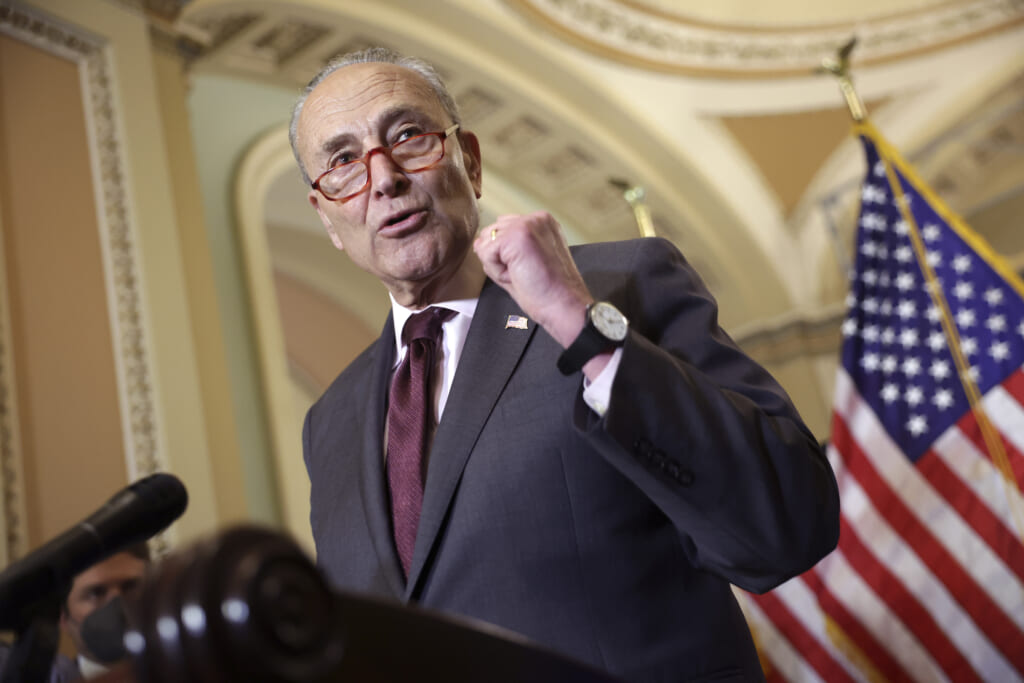
“[It’s] the beginning of Republican attempts to use the Supreme Court to turn back the clock to a time when women, people of color and LGBTQ people are all considered second-class citizens,” Schumer added.
Senator Elizabeth Warren (D-Mass.) who has protested twice outside of the Supreme Court over the recent controversy told theGrio in a statement, “If this extremist Supreme Court overturns Roe v. Wade, Black women and low-income women, many of whom are already mothers, will be hit the hardest.”
The former presidential candidate urged Congress to “enshrine the right to abortion into federal law by passing the Women’s Health Protection Act.”
U.S. Rep. Barbara Lee has openly opposed any attempts to abolish abortion. The California congresswoman also previously shared her personal journey in deciding to have an abortion.
“Every individual should have the right to make their own personal health care decisions that impact their lives, health and futures. It is chilling to think this court is unwilling to protect those decades-old constitutional rights,” said Lee.
Rep. Lee voted alongside her Democratic colleagues in the U.S. House to codify abortion rights by passing the Women’s Health Protection Act last year. She urged the Senate to pass the bill because “lives depend on it.” Lee also noted that “abortion is still legal” as the nation awaits the Supreme Court’s decision.
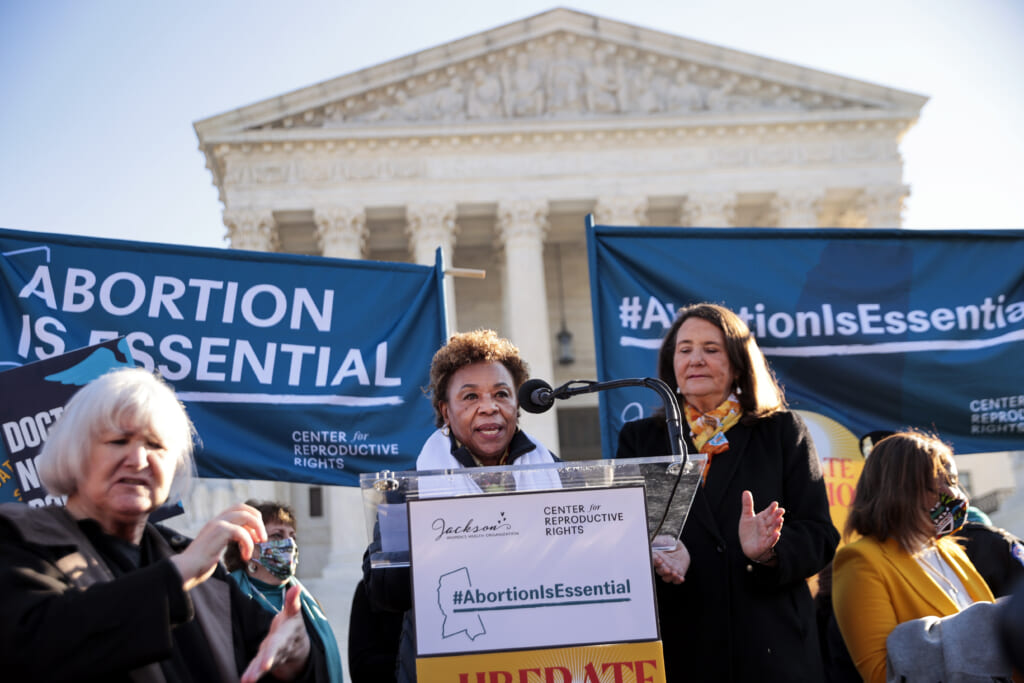
If the high court does hand down the expected overturning of Roe v. Wade, Congresswoman Lee said the decision will “deal a shattering blow to millions, especially low-income people and women of color.”
Lee is one of 59 members of the Congressional Black Caucus (CBC) that is said to be completely pro-choice. It’s worth noting that there are three Black Republican members of the House and Senate who are not a part of the historic congressional body of Black lawmakers. The abortion discussion is said to be part of a “robust” conversation during CBC’s weekly meeting on Wednesday.
Congressman Mondaire Jones (D-N.Y.) is emphatic that there must be change to the Supreme Court given the likely rollback on women’s healthcare.
“We have a Supreme Court majority that is even more conservative today and that is even more hostile to the will of Congress, which is in our government, the greatest expression of the American people,” Jones told theGrio.
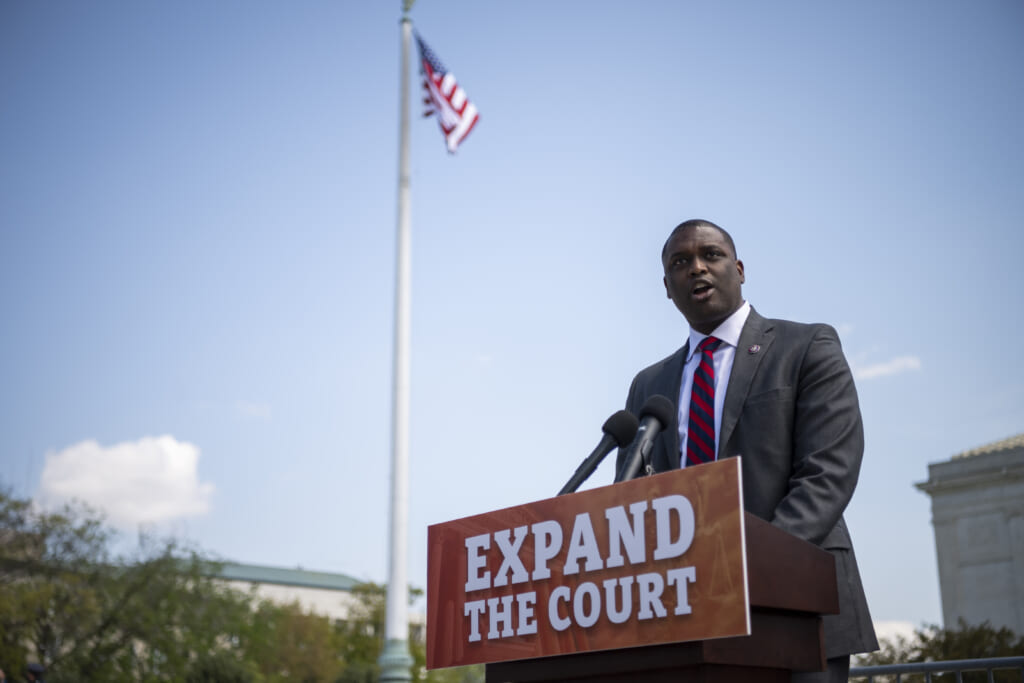
The 34-year-old lawmaker, along with Reps. Jerry Nadler (D-N.Y.) and Hank Johnson (D-Ga.), introduced The Judiciary Act of 2021, which would expand the Supreme Court from nine seats to thirteen. The Democratic lawmakers have argued that doing so would remedy a conservative court-packing by Republicans over recent years.
“If the will of the American people is not respected by the 6-3 majority on the Supreme Court, then we’ve got to add seats to the Supreme Court to restore balance and to restore once again a pro-democracy majority and a pro-choice majority on the court,” said Jones.
However, expanding the court in the near future may be unlikely as there doesn’t appear to be an appetite for it. To date, the bill has only been endorsed by 55 House Democrats.
TheGrio is FREE on your TV via Apple TV, Amazon Fire, Roku and Android TV. Also, please download theGrio mobile apps today!
More About:Politics
